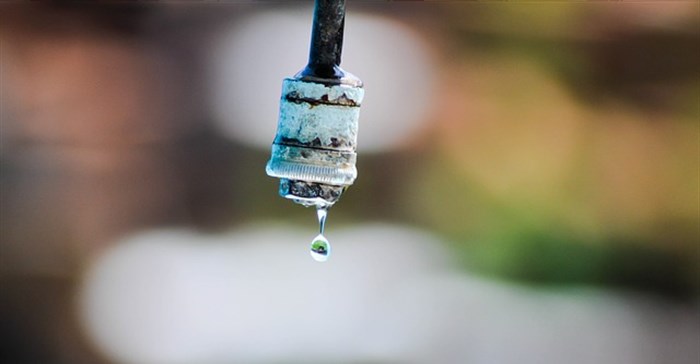Dams across the country are at their lowest levels in years, the inter-ministerial task team on drought said on Thursday. While reiterating that there was not yet a need to declare the ongoing drought a disaster, ministers Des van Rooyen, Nomvula Mokonyane and Senzeni Zokwana highlighted the need for stringent measures.
As of September 5, dam levels were at 53%, Van Rooyen said at a media conference on the drought. "The long-range forecast shows a below-normal expected rainfall and, therefore, little relief is anticipated in the coming months."
He said the drought was still persisting in most parts of South Africa and that the recovery would be delayed due to expected rainfall conditions. Current indications were that above-normal rainfall and temperatures could be expected during the early summer season, he said.
Mokonyane said that figures showed that the average person used about 280 litres of water a day, compared to the worldwide average of 175 litres per person.
Emphasising that there was no need to declare a drought, Mokonyane said South Africans could help turn the tide. Some of the solutions, she said, did not require money, but co-operation.
Plans to 'intensify' water restrictions
The need for water restrictions was emphasised, with ministers saying the restrictions in Johannesburg were not unique. "One area we think we have to look at is to intensify, more especially at a household level, the water restrictions. That's an area that we need to intensify. It is the work that is happening in all municipalities, not just Gauteng," Van Rooyen said.
The task team went through some of the interventions, including the money allocated for the alleviation of the drought. These included R173m to assist farmers with animal feed and stock, as well as funding made available by the Industrial Development Corporation through the Land Bank to assist farmers.
The Agricultural Research Council had also introduced a drought tolerant maize seed, they said.
Zokwana said they were monitoring food prices, but they hoped to get early rains around November. He said prices had, so far, gone up by 30% in terms of what a poor person could buy.
Mokonyane urged South Africans to use less water by staying out of their jacuzzis, using a glass of water when they brushed their teeth, and using wet wipes to remove their make-up, while Zokwana called on farmers to use a drip system to limit the use of water.
"And choosing the time which you irrigate, so that you reduce the impact," he said.
Source: News24
Read this report on News24Wire.com.










































